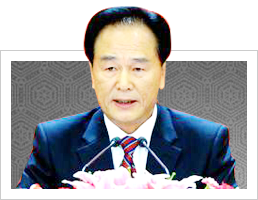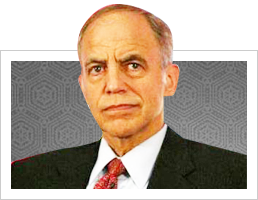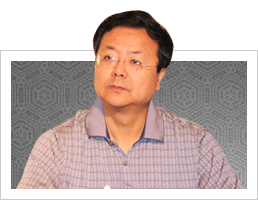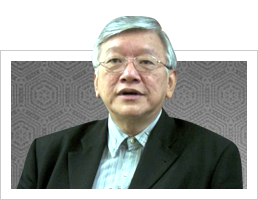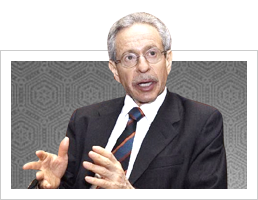The Chinese dream and peaceful development
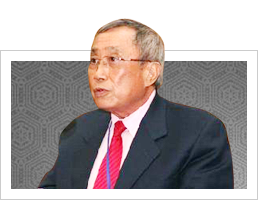
The author is Vice Chairman of the Board of Trustees CSIS Foundation.
For centuries China had been the centre of human civilization, and yet almost always defensive and inward looking. Except during the Ching Dynasty, which is Manchu and not Han, some regions adjacent to China had been incorporated.
China was content with itself when the region recognized it as a major power. That changed when Western colonialism, starting with the Opium War, imposed opening the country to trade, including opium. And since then many times China was invaded or temporarily occupied by foreign powers in wartime.
The struggle for China since then, even in the declining Ching Dynasty, was how to repel the West and Japan as colonizers and to retrieve all parts of China that had been occupied by those powers. With the birth of the PRC Mao managed to unify China in 1949. A Herculean task was faced by China during its nation-building efforts to move the country again. After more than 35 years of national, especially economic development, under the leadership of Chairman Deng from 1978 until he stepped down, the realization of the Chinese Dream to become a wealthy and powerful country at long last showed concrete results.
Now, under Chairman and President Xi Jinping, China can look forward to its dream coming true. The results of the Third Plenum of the 18th Central Committee Meeting are reform oriented, especially in responding to the new challenges China is facing for its better future.
In short, China is resolved to deal with:
- Social equity: equal treatment of migrant workers in urban areas or reform of the Hukou system.
- Market forces: giving the market a "decisive" role in setting prices.
- Social reform: freeing up land in rural areas the migrants left behind to become a boost for economic growth. Also, the gradual liberalization of the one child policy will be good for economic growth.
- Political reform: a gradual process that does not include adoption of a Western liberal democracy. Mr. Xi abolished the forced labor penalty. He recognized the usefulness of NGOs and is open to have a partial independent court system.
The dream of China is to become a strong and wealthy country, and one with a utilitarian purpose, and the reforms adopted in the Third Plenum are making headway to this becoming a reality. It is going to double the per capita income to US$12,000.00 by 2021 - the year marking the centennial of the Party - and to become a developed economy in 2049, the centennial of the founding of the PRC.
Connotations of Chinese Dream
Inspired by the Chinese Dream, more and more people have begun to chase their own dreams, including dreams to receive better education, start businesses, purchase homes and get rich. People firmly believe that as long as they work hard, their dreams would come true. [more]
Chinese dream and China's governance
A great deal will depend on how Xi Jinping will actually implement the core features of the program he has laid out and how he will seek to create incentives and constituencies to support his programmatic goals.In sum, President Xi has now made very clear where he stands and where he wants the country to go under his leadership, and he has achieved wide-ranging endorsement of this overall program. [more]
Chinese Dream includes strong PLA
The PLA as a pillar of State security follows the trend of the times and follows a principle that is different from colonial aggression and expansion. And China firmly believes in the principles of peace, cooperation and development of military ties with other countries. [more]
The Chinese dream and peaceful development
The most difficult issue in the region now is the the relationship between China and Japan regarding overlapping claims on the Diaoyu, or Senkaku, islands group. The problem is residual from World War II, and the historical part of the issues is complicated. That is why Japan PM Abe’s revisionist statement on World War II and its impact does not help. [more]
The year of Chinese Dream
Distinct from the American Dream, the Chinese Dream cannot be a narrative of pure newness. It is the imagining of a better future with the memory of 4,000 years of history, a movement of renaissance expressed in the vision of "civilizational China". [more]
Defeat challenges, realize Chinese Dream
High economic growth in recent decades may have made China more confident of realizing the Chinese Dream, but the country's new leaders face serious challenges that could hamper their efforts to realize the goal.First and foremost is the need to fight widespread corruption. Making this his main priority, President Xi warned that corruption could lead to "the collapse of the Party and the downfall of the State". [more]
World dialogue on the Chinese Dream
The “Personal Chinese Dream” focuses on the well-being of individual Chinese citizens and thus modifies traditional notions of the primacy of the collective over the individual. The dream of the Personal is balanced with the dream of the National. In fact, the fulfillment of The Personal Chinese Dream constitutes a good part of what it means to fulfill the National Chinese Dream. [more]
Making a nation's dream come true
Promoting Chinese concepts in the rest of the world is not very difficult - stop translating key Chinese terminologies (at best, give the appropriate or closest meaning and continue with the Chinese terminology). If kung fu, wushu, rujia, shengren, junzi can be understood and accepted by the outside, why not zhongguo meng? Once you translate a Chinese term you give away the definition of thought. [more]

